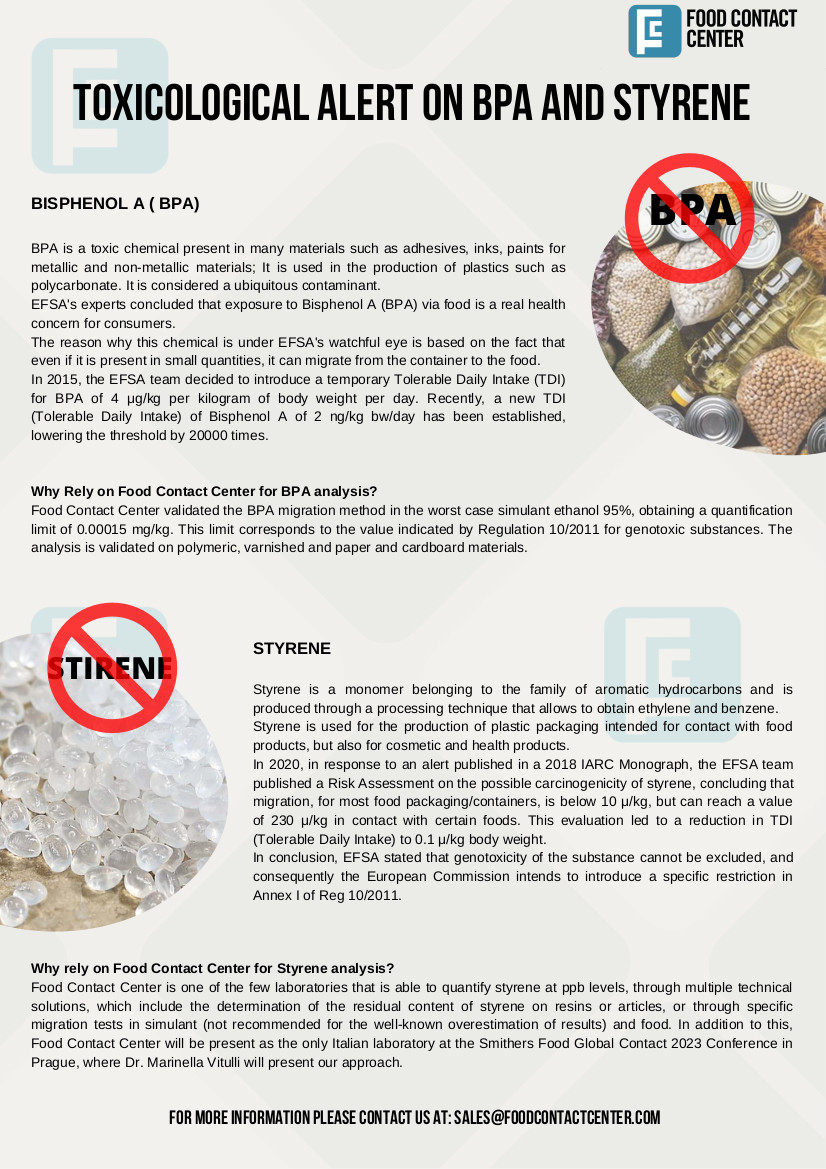Toxicological alert on BPA and Styrene

Toxicological alert on BPA and Styrene
BISPHENOL A ( BPA)
BPA is a toxic chemical present in many materials such as adhesives, inks, paints for metallic and non-metallic materials; It is used in the production of plastics such as
polycarbonate.
It is considered a ubiquitous contaminant. EFSA’s experts concluded that exposure to Bisphenol A (BPA) via food is a real health concern for consumers.
The reason why this chemical is under EFSA’s watchful eye is based on the fact that even if it is present in small quantities, it can migrate from the container to the food.
In 2015, the EFSA team decided to introduce a temporary Tolerable Daily Intake (TDI) for BPA of 4 μg/kg per kilogram of body weight per day. Recently, a new TDI (Tolerable Daily Intake) of Bisphenol A of 2 ng/kg bw/day has been established, lowering the threshold by 20000 times.
STYRENE
Styrene is a monomer belonging to the family of aromatic hydrocarbons and is produced through a processing technique that allows to obtain ethylene and benzene.
Styrene is used for the production of plastic packaging intended for contact with food products, but also for cosmetic and health products.
In 2020, in response to an alert published in a 2018 IARC Monograph, the EFSA team published a Risk Assessment on the possible carcinogenicity of styrene, concluding that
migration, for most food packaging/containers, is below 10 μ/kg, but can reach a value of 230 μ/kg in contact with certain foods. This evaluation led to a reduction in TDI (Tolerable Daily Intake) to 0.1 μ/kg body weight.
In conclusion, EFSA stated that genotoxicity of the substance cannot be excluded, and consequently the European Commission intends to introduce a specific restriction in Annex I of Reg 10/2011.
